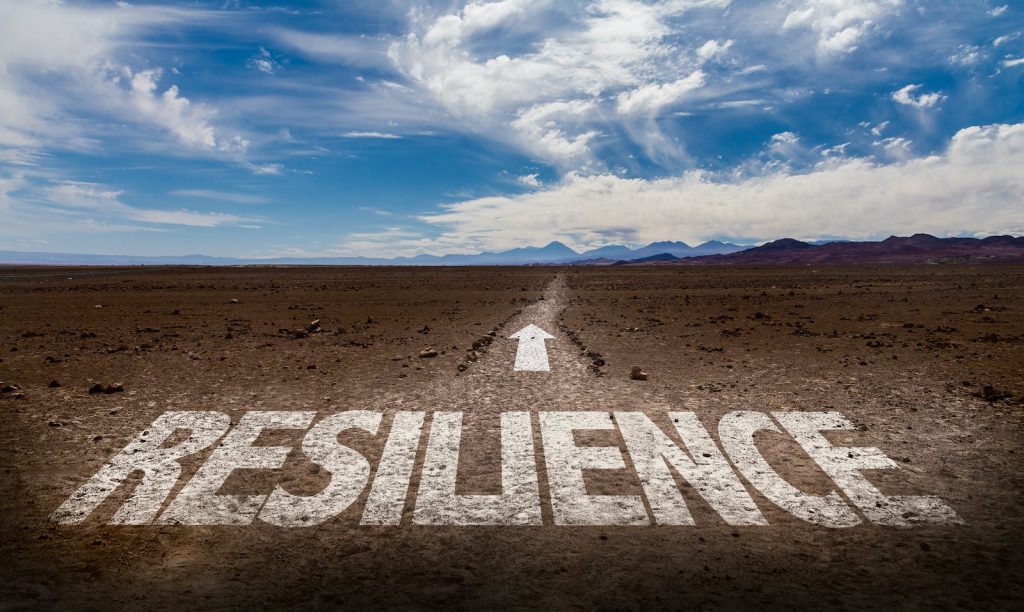A colleague asked if I would write an article to help boost the resilience and morale of staff on her hospital unit… Tall order? Hot topic? Buzz words? Yes. Fostering resilience among healthcare professionals is all of these things. It is also needed, perhaps now more than ever. We are not just stressed, tired or frustrated. We are unwell, sick even. In a number of indicators, professional healers and caregivers qualify as some of the least healthy citizens of the U.S. (American Nurses Association, 2017 and Letvak, Ruhm, & Gupta, 2012). Ironically, what ails us seems to be a direct consequence of the stress we encounter in our profession. This is despite a variety of improvement initiatives and efforts made by our leaders and ourselves.
So, what can I possibly offer you that might be both encouraging and useful to boosting resilience? How about a refreshed perspective on a healing resource we already have access to? Relationship. Hear me out.
First, the potentially disheartening news: Did you know that your coworkers internal state of well-being or lack thereof directly affects your personal physiology and therefore health outcomes? That’s right, we can and do decrease each other’s health and wellbeing through our interactions with each other. FYI this extends to our patients’ health outcomes as well (references follow article).
Now, the good news: We can just as easily improve multiple aspects of each other’s objective health outcomes when we interact. Think of a time in your life when you were really struggling, perhaps even suffering. What was the source of what eventually helped you through it? What allowed you to put one foot in front of the other and continue on? It was likely the feeling of being supported by another person because you felt that they understood and could relate to you. Notice the feelings, thoughts and beliefs that come up inside of your body as you reflect upon this memory. Recall how powerfully your relationships with people have affected your wellbeing.
Researcher Brene Brown defines connection as “…the energy that exists between people when they feel seen, heard, and valued; when they can give and receive without judgment; and when they derive sustenance and strength from the relationship.”
I originally believed that I went into nursing to give to and help people, but in hindsight I realize that wasn’t true. The truth is that I went into nursing to protect myself from people by avoiding the pain and suffering I had come to associate with being dependent on others. Nursing not only provided me with the financial independence needed to make it, but also created an infrastructure by which I could establish the norms and boundaries of my interactions and relationships with patients and peers.
I think I sought out a calling that would fulfill my needs for human connection in a way that felt contained and safe. It occurred in a controlled professional environment, much like a bubble of the human experience that I was able to disengage and walk away from at the end of the day. As time went on the increasingly dynamic challenges of the nursing profession required real time adaptation and coping in order to meet performance standards.
We are taught how to assess our patients, diagnose and treat our patients, and resuscitate our patients with extreme measures. But we are not taught how to handle what comes up inside of us as a result of our scope of practice. Nor are we taught how to hold space for the internal processes and reactions of everyone else around them. I tend to shut people out and isolate myself when feeling stressed or vulnerable. Denying my reactions during difficult circumstances served a purpose in that it protected me and helped me to continue to perform and function. However, disconnecting from patients and peers in order to face the daily challenges of our profession put me out of touch with the feelings of kinship I need to process, heal, and feel a sense of belonging at work.
Tired and disheartened, I chose to attend an integrative nurse coach training with the intent of developing advanced personal and professional communication skills. What I found, in addition to new skill sets, was a family of like-minded sisters and brothers who embraced me wholeheartedly, flaws and all. This was a very different experience of nursing than I had previously. I have lost and found myself many times through the struggles of being a nurse, and as a result I finally learned that I need connection to my community to thrive. Since realizing this, I see how my wellbeing is a result of the resilience cultivated through healthy relationships.
Healthy connections within ourselves and between each other are not only how we will save and heal ourselves/each other, but also how we will find our way (back) to doing what makes us thrive.
“Resilience can be described as the ability to meet with difficult feelings and setbacks, and not only to trust in our capacity to adapt and recover from them, but to find something redemptive hidden within adversity” (Turner, 2017).This is an extremely empowering way to reframe the moments I typically regard as failures and promptly do my best to forget happened. Don’t get me wrong, there are some days at work that I am so over it, and that I don’t want to grow anymore, personally or professionally. I don’t have one more ounce of mindfulness or compassion left in me to give. Not even to myself. But that’s ok, because on these days when I need more strength than I can muster on my own, I have you, and the other nurses too.
These are the days my ability to practice healthy coping skills come from the energy created by connecting with my surrounding community of peers. The next time you are faced with a particularly difficult peer to peer interaction or situation, consider this timeless reflection offered by Mr. Rogers: “how sad it is that we give up on people who are just like us”, and how “inner diversity can translate into outer inclusivity”(Turner, 2017). If you’re reading this on the unit, take a moment to look around at your peers and let this sink in. Just like you, they need to feel support from colleagues in order to believe that they too are of value and belong.
Rather than an object to obtain, we can see belonging as a state of being and embrace that it is cultivated by our individual and communal actions. It is important to surround ourselves with people who inspire us to open and never judge or reject us for doing so, because our work is hard enough already.
With appreciation, respect, and care for all nurses, nurse coaches, healers,
Sarah DeVincenzi
Note: For those of you who prefer a side of hard science to go with mushy sentiments, you will find an annotated bibliography with references below. The evidence-based research focuses on interpersonal neurobiology, psychoneuroimmunology and relationship science in healthcare. The research supports the correlation between emotional distress and burnout, and also between supportive relationships, burnout prevention and improved health outcomes.
American Nurses Association. (2017). Executive summary: American Nurses Association health risk appraisal. Retrieved from http://www.nursingworld.org/HRA-Executive-Summary
Beach, M. C., & Inui, T. (2006). Relationship-centered care. A constructive reframing. Journal of General Internal Medicine, 21(S1), S3-S8. doi:10.1111/j.1525-1497.2006.00302.x
A perspective journal piece offering a constructive reframing of patient centered care: “All illness, care, and healing processes occur in relationships— relationships of an individual with self and with others. Relationship-centered care (RCC) is an important framework for conceptualizing health care, recognizing that the nature and the quality of relationships are central to health care and the broader health care delivery system.”
Jack, A. I., Boyatzis, R. E., Khawaja, M. S., Passarelli, A. M., & Leckie, R. L. (2013). Visioning in the brain: An fMRI study of inspirational coaching and mentoring. Social Neuroscience, 8(4), 369-384. doi:10.1080/17470919.2013.808259
An empirical study obtained data through diagnostic imaging of the psychophysiologic process that occurs during effective coaching. Analysis of the participant’s fMRI performed during positive social interaction between coach and participant revealed activation of areas of the brain that increase cognitive and perceptual openness, and engagement of positive motivational processes. The data also suggests that improved behavior change outcomes may be related to an increased sense of social-emotional security created during the coaching relationship.
Schroder, H. S., Moran, T. P., Donnellan, M. B., & Moser, J. S. (2014). Mindset induction effects on cognitive control: A neurobehavioral investigation. Biological Psychology, 103, 27-37. doi:10.1016/j.biopsycho.2014.08.004
Another approach when coaching nurses involves intra and interpersonal neurobiology. This study explored the neuro-cognitive and behavioral correlates of cognitive control using an electroencephalogram to demonstrate that the connection between a person’s beliefs and their physiology is present and malleable, suggesting that mind does indeed affect body.
The combined findings of the two studies just referenced above have significant implications. They suggest that not only can a person’s mind effect their physical health, but that person A’s mind can affect person B’s mind, which will in turn affect person B’s health. In other words, in the structure of a coaching relationship, people are able to enhance multiple facets of each other’s health, solely through their interpersonal connection.
Letvak, S. A., Ruhm, C. J., & Gupta, S. N. (2012). Original research. American Journal of Nursing, 112(2), 30-38. doi:10.1097/01.naj.0000411176.15696.f9
McKay, K. M., Imel, Z. E., & Wampold, B. E. (2006). Psychiatrist effects in the psychopharmacological treatment of depression. Journal of Affective Disorders, 92(2-3), 287-290. doi:10.1016/j.jad.2006.01.020
Worth mentioning is a study revealing that the personal attributes of and connection to the treating psychiatrist plays a larger role in patient improvement than prescribed medication did. This was a multilevel, secondary analysis of data from a previous blinded, prospective study of the efficacy of a pharmaceutical antidepressant in conjunction with clinical management compared to the efficacy of a placebo and clinical management. Reexamination of the data while factoring in effectiveness of the individual psychiatrists shows that the practitioners were responsible for more of the variance of outcomes.
This data finding is supportive of improved patient outcomes related to quality of relationship and connection between practitioner and patient. It appears that interpersonal dynamics can independently improve patient outcomes and concurrently increase the efficacy of multiple other treatment modalities.
Turner, T. (2017). Belonging: Remembering ourselves home. Salt Spring Island, British Colombia: Her Own Room Press.
{





